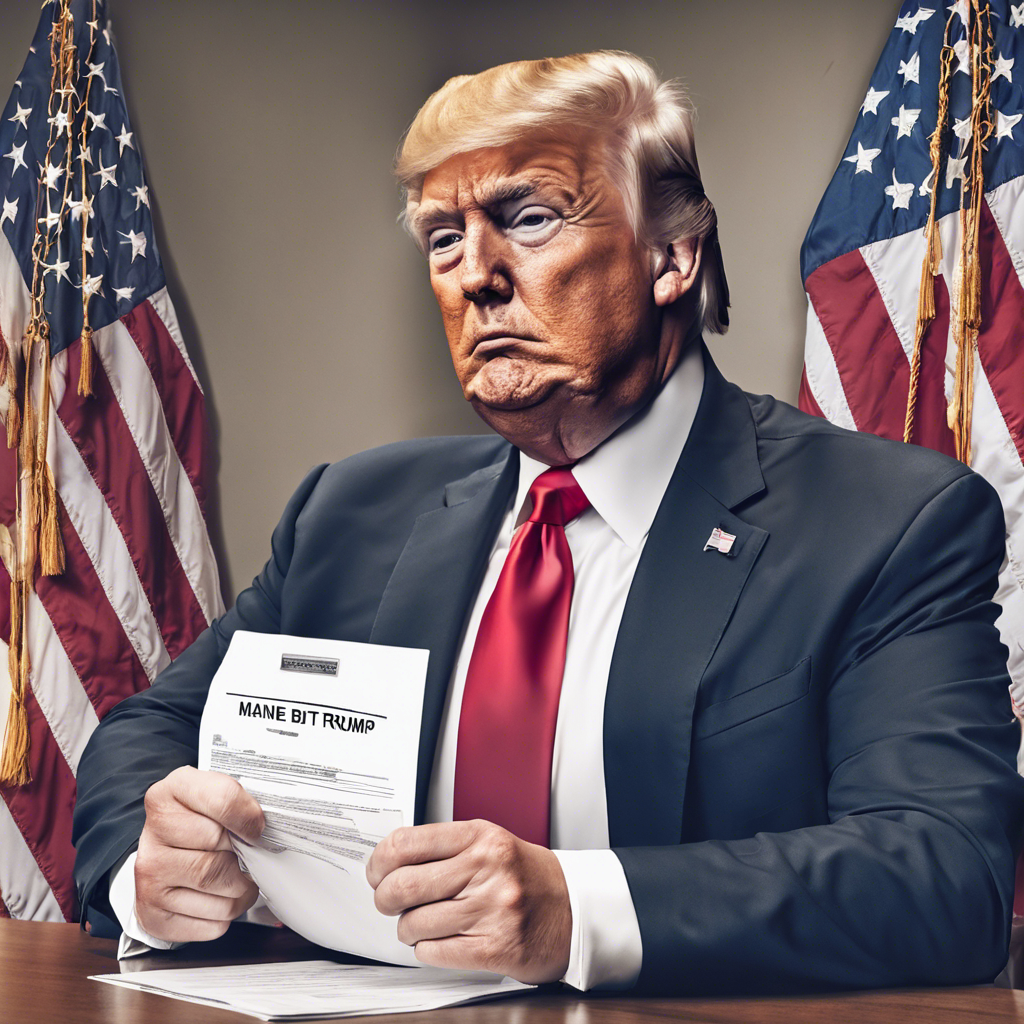Maine Removes Trump from 2024 Primary Ballot, Citing 14th Amendment’s “Insurrectionist Ban”

Maine becomes the second state to disqualify former President Donald Trump from the primary ballot, invoking the 14th Amendment’s provision on insurrection.
In a surprising decision, Maine Secretary of State Shenna Bellows has removed former President Donald Trump from the state’s 2024 primary ballot. Citing the 14th Amendment’s “insurrectionist ban,” Bellows paused her decision pending a potential appeal in state court. This move follows a similar ruling by the Colorado Supreme Court earlier this month, making Maine the second state to disqualify Trump from office. Trump’s critics see this as a significant victory, arguing that the provision was designed to protect the country from anti-democratic insurrectionists.
The Legal Basis for the Decision
Bellows, a Democrat, issued the decision after presiding over an administrative hearing regarding Trump’s eligibility for office. A bipartisan group of former state lawmakers filed the challenge against Trump. The 14th Amendment, ratified after the Civil War, prohibits American officials who “engage in” insurrection from holding future office. However, the provision does not specify how the ban should be enforced. Legal experts believe that the US Supreme Court will ultimately settle the issue for the entire country.
Momentum for Trump’s Critics
The Maine decision builds on the momentum gained by Trump’s critics after the Colorado ruling. Prior to Colorado, several other states, including Michigan and Minnesota, rejected similar efforts to disqualify Trump. The rulings in Maine and Colorado demonstrate a growing push to enforce the 14th Amendment’s provision in response to the January 6, 2021, attack on the US Capitol.
Trump’s Response and Accusations
In response to the decision, Trump campaign spokesman Steven Cheung accused Bellows of being a “virulent leftist” who is interfering in the presidential election. Cheung argued that Democrats in blue states are unconstitutionally suspending the civil rights of American voters. Trump’s team intends to file an appeal in state court.
Bellows’ Legal Obligation
Bellows, in her decision, emphasized her legal obligation to adhere to the 14th Amendment’s insurrectionist ban and remove Trump from the primary ballot. She stated that her duty under Maine’s election laws is to ensure that candidates appearing on the primary ballot are qualified for the office they seek. Bellows concluded that the evidence presented by the challengers demonstrated that Trump’s false narrative of election fraud inflamed his supporters and incited the January 6 insurrection.
Decision Paused Pending Appeal
Bellows’ decision has been put on hold until Maine’s Superior Court, a trial-level court, makes a ruling. Trump or others can appeal the decision at this level. Maine’s laws require the Superior Court to reach a decision within 20 days from the date of Bellows’ decision, which would be January 17. The appeal process and Bellows’ choice to pause her decision mean that the state courts are likely to rule on Trump’s eligibility quickly, before ballots are sent out to voters.
Conclusion: The decision by Maine Secretary of State Shenna Bellows to remove Donald Trump from the 2024 primary ballot based on the 14th Amendment’s “insurrectionist ban” marks another significant development in the ongoing debate over Trump’s eligibility for office. With the Colorado Supreme Court’s ruling and the growing momentum among Trump’s critics, the issue is likely to be settled by the US Supreme Court. The outcome of this legal battle will have far-reaching implications for the interpretation and enforcement of the 14th Amendment, as well as for the future of American democracy.

